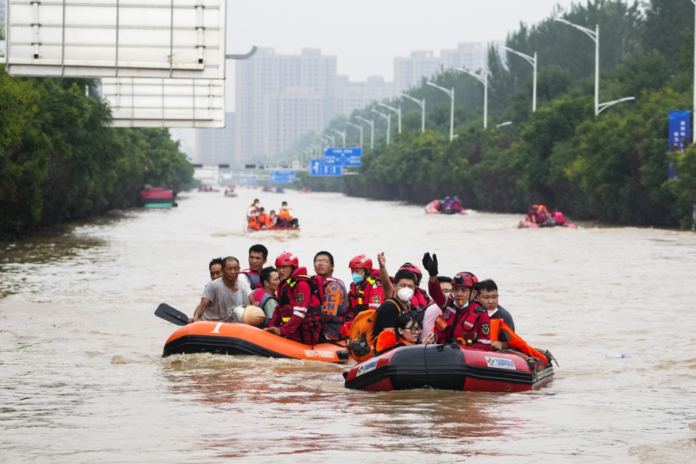While flood waters receded from rural areas in northern China, there were warnings about the onset of agricultural and animal diseases. Some cities also battled to restore drinking water supplies following the worst floods in six decades.
Storms that accompanied Typhoon Doksuri last week dumped more rain than a year’s worth of rainfall in Hebei province, which borders Beijing. This had an impact on autumn harvests and damaged agricultural machinery.
Following a Tuesday survey of the impacted areas, China’s agriculture minister Tang Renjian emphasised the need for local authorities to take more action to avoid and manage significant disease outbreaks brought on by dead animals, pests, and insects.
Numerous pigs and lambs drowned in the flooding, severely disrupting farming operations across Hebei, and crops were devastated.
To prevent crop losses and ensure that the planting of winter wheat is unaffected, Tang said it is also necessary to reduce waterlogging and drain floodwaters from fields that have already been planted.
“Agricultural and rural departments at all levels should accurately assess the disaster situation of farmers, help the affected farmers solve practical difficulties, and prevent disaster-caused poverty or return to poverty,” Tang said in a statement posted on the ministry website.
Workers in hazmat suits sprayed disinfectant in populated areas in Zhuozhou, the worst-affected city in Hebei, to stop the spread of sickness, according to state-run Xinhua news agency.
In certain rural regions and Hebei cities like Shijiazhuang, where water pipes and wells were devastated in the floods, affecting tens of thousands of residents, clean water supply has been cut off.
In order to immediately restore drinking water supplies, the Water Resources ministry has announced an emergency reaction, which includes putting up supply points and sending out water trucks.
Even in Beijing, where the floods have claimed the lives of at least 33 people, a group of around 600 individuals were “racing against time” to reestablish water service in a remote area.



